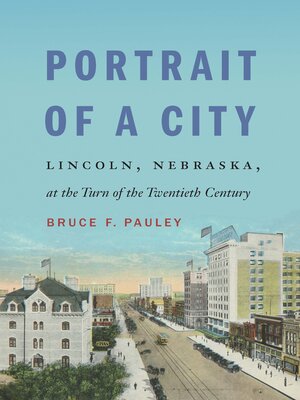Portrait of a City
ebook ∣ Lincoln, Nebraska, at the Turn of the Twentieth Century
By Bruce F. Pauley

Sign up to save your library
With an OverDrive account, you can save your favorite libraries for at-a-glance information about availability. Find out more about OverDrive accounts.
Find this title in Libby, the library reading app by OverDrive.



Search for a digital library with this title
Title found at these libraries:
| Library Name | Distance |
|---|---|
| Loading... |
Once just a scattering of houses on the open prairie, by the late nineteenth century the city of Lincoln, Nebraska, had evolved into a modern metropolis. The changes ushered in by the Industrial Revolution and an increase in machine labor affected all aspects of daily life—housework, transportation, education, entertainment, fashion, and medicine—changing lives drastically in little more than a single generation. Lincolnites moved beyond simply growing a new city; many also wanted to help create a more enlightened society. By 1910 the city had become a booming political, educational, and cultural center on the Great Plains, with three denominational colleges and a state university with a national reputation for academic excellence.
In Portrait of a City Bruce F. Pauley highlights his hometown of Lincoln, Nebraska, during a period of rapid social and technological change between the 1890s and 1920s. Pauley examines a multitude of important aspects of daily life, including the modernization of homes, public and private transportation, education, the status of women, and entertainment. He also addresses the challenges of life during this time, like the loss of civil liberties during World War I. Pauley's descriptions and stories allow readers a glimpse into everyday life in Lincoln at the turn of the century.
In Portrait of a City Bruce F. Pauley highlights his hometown of Lincoln, Nebraska, during a period of rapid social and technological change between the 1890s and 1920s. Pauley examines a multitude of important aspects of daily life, including the modernization of homes, public and private transportation, education, the status of women, and entertainment. He also addresses the challenges of life during this time, like the loss of civil liberties during World War I. Pauley's descriptions and stories allow readers a glimpse into everyday life in Lincoln at the turn of the century.







